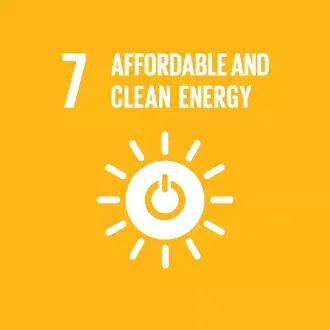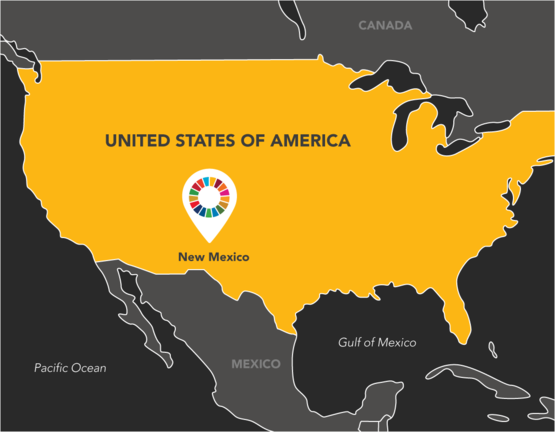

Clean, Affordable Energy Offers Path to Environmental and Social Justice
Energy powers our world. It moves food and water to nourish communities, charges medical devices that save lives, illuminates homes and cities so we can study and work at night, and keeps billions of people connected online. Harnessing these miracles of energy has propelled many societies forward, but not without consequences. Too often energy “progress” devastates local environments and forces heavy costs onto vulnerable communities who reap few of the benefits.
Consider smartphones. This modern technology contains precious metals extracted from Sub-Saharan Africa, yet most of the region and 800 million people worldwide can’t access electricity to use them. 2.8 billion people lack clean cooking fuels and tools, resulting in 2.5 million premature deaths each year from cooking smoke and household air pollution. Only 17 percent of global energy consumption now comes from renewable sources, not nearly enough to meet long-term climate goals at projected growth rates.
Over-reliance on dirty energy impedes all sustainable development goals. Responsibly implementing clean and affordable energy solutions today will improve billions of human lives and help shield future generations from climate change’s worst effects. This will benefit all life, protecting delicate ecosystems and promoting biodiversity below water and on land.
Goal 7 aims to ensure affordable, reliable, sustainable, and modern energy for all. This means universal access to electricity and clean fuel technology. To succeed, UN bodies and partners are working with local communities to shift energy consumption to renewable sources and improve overall efficiency. This will require better international cooperation and greater investment in clean energy technology and infrastructure, especially in developing countries.
Religious institutions and faith-based organizations have good reason to champion affordable clean energy. For humans, it promises greater dignity, opportunity, and equality, moral principles that unite and transcend belief systems. For Earth, it promises a healthier environment, advancing our common duty to act as good stewards of divine creation.
Secular groups and policymakers are increasingly recognizing faith actors’ long-standing commitments to social justice and environmental conservation and partnering with them to advance sustainable energy projects. The UN Environment Programme’s Faith for Earth Initiative launched in 2017 to help faith leaders develop strategic messages for their communities, model sustainable behaviours, and collaborate more effectively.
One key partner in UNEP’s initiative is the Interfaith Center for Sustainable Development, which heads the Faith-Inspired Renewable Energy Project. This project works with local villages in Sub-Saharan Africa to replace wood and diesel -- heavily polluting fuels -- with renewable solar and wind energy. They accomplish this by helping faith institutions install large-scale solar fields on their lands, bringing clean energy and jobs to rural communities in Mozambique and beyond.
GreenFaith works more globally to inspire, educate, and mobilize people of diverse religious and spiritual backgrounds to protect the environment and embrace sustainable living. Since 1992 the interfaith NGO has organized environmental advocacy campaigns and helped faith communities green their operations. GreenFaith co-founded the Shine Campaign to encourage more religious and spiritual institutions to align their financial and moral values by investing in clean and affordable energy initiatives instead of fossil fuels. Other faith-based Shine Campaign partners include American Jewish World Service, Christian Aid, Islamic Relief Worldwide, the Hindu-led Bhumi Project, and the Interfaith Center on Corporate Responsibility.
United Religions Initiative’s Environmental Network unites nearly 200 interfaith communities to promote renewable energy use and environmental wellbeing. URI partnered with Women’s Earth Alliance in 2018 to launch the Ripple Academy, a coordinated training curriculum that supports women leaders from around the world to create impactful social and environmental change. Academy projects include clean cookstove microenterprises in Kenya, community seed banks in Egypt, and water rights in Jordan, all with positive clean energy implications for their communities.
Faith-specific organizations are also hard at work promoting renewable energy. Muslim Hands, an aid agency and NGO, prioritises environmental sustainability in everything they do. Instead of using diesel-powered generators to produce electricity for new building projects, they use solar energy to reduce CO2 emissions. Muslim Hands also install solar water wells in places like Gaza where electrical shortages disrupt daily life. This emphasis on clean energy and sustainability extends to their school curriculum and community outreach initiatives, ensuring that best practices are put to good use.
Norwegian Church Aid’s climate programmes all emphasise the knock-on benefits of clean energy for poverty reduction, hunger alleviation, good health, clean water, gender equality, and economic empowerment. In Somalia and Burundi their “Education 4 Sustainability” project combines solar energy with education and income-generating opportunities to empower rural communities. Nearly 400 participants, mostly unemployed women and youth, have learned about entrepreneurship and renewable energy and are using solar products in their homes and businesses for clean and reliable electricity.
The Lutheran World Federation believes equitable energy access is a fundamental right and prerequisite for humans to fulfil their potential. Wherever service breaks down in times of crisis, the Federation steps in to provide at-risk communities with renewable energy and mobile and internet connectivity, improving their economic opportunities and social cohesion.
These and countless other religious institutions and faith-based organizations show that reliable access to affordable clean energy helps advance all sustainable development goals. They understand that when we advance environmental and social justice, we honour the sacredness of creation, protecting our planet and its people for generations to come. Faith actors and secular development leaders may differ in their motivations but are increasingly united in their commitment to ensuring universal access to clean electricity and fuel technology.